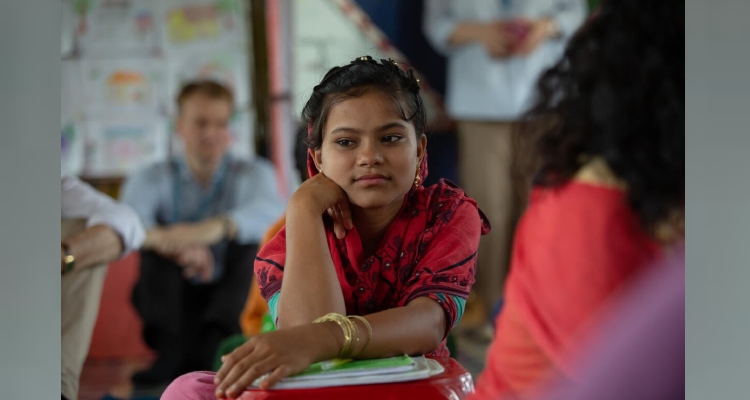
The Delhi High Court on Tuesday has declined to entertain a Public Interest Litigation that challenged the denial of school admissions to Rohingya refugee children from Myanmar due to their lack of Aadhaar cards.
The bench, led by Chief Justice Manmohan and Justice Tushar Rao Gedela, directed the petitioner NGO to submit a representation to the Ministry of Home Affairs (MHA) regarding the issue.
The court disposed of the petition, stressing that the matter should be addressed by the government as quickly as possible.
During the hearing, the bench remarked, “The issue is that there is legislation in Assam calling for expulsion, and here you are facilitating their stay. Please make a representation; let the government decide. We cannot allow this. No court in any country determines who receives citizenship. What you cannot do directly, you are attempting indirectly. First, approach the appropriate authorities.”
The judges further stated, “You can’t use the court process for this. They must be recognized as Indians; we cannot take on that responsibility. Let’s not lose sight of the fact that these are international issues, not just national ones, and they have significant ramifications. There has been considerable turmoil in the state.
Either approach the Ministry of Home Affairs or the Ministry of External Affairs, as these are critical policy matters.”
The recently filed PIL claimed that the Municipal Corporation of Delhi (MCD) acted arbitrarily and unlawfully by denying statutory benefits to Rohingya refugee students enrolled in their schools.
The petition, filed by the NGO Social Jurist, argued that this conduct infringes upon the children’s fundamental right to education as guaranteed by Articles 14, 21, and 21-A of the Constitution of India, along with the Right of Children to Free and Compulsory Education Act, 2009.
The plea highlighted that MCD schools were denying admission based on the absence of Aadhaar cards, bank accounts, and other documents, despite the children possessing refugee cards issued by the UNHRC.
It emphasized that as long as these children are in India, they are entitled to fundamental and human rights to education, as guaranteed by the Constitution and relevant statutory laws. Thus, the denial of this right is a violation of their fundamental and human rights.
Furthermore, the plea stated that it is the responsibility of the Directorate of Education and the MCD to ensure that all students under the age of 14 are admitted to government or MCD schools, particularly in areas like Sri Ram Colony and Khajoori Chowk where these children reside.
The court’s decision underscores the importance of engaging with government authorities on policy matters affecting refugee rights and education, while also highlighting the complex interplay between national and international legal frameworks.




